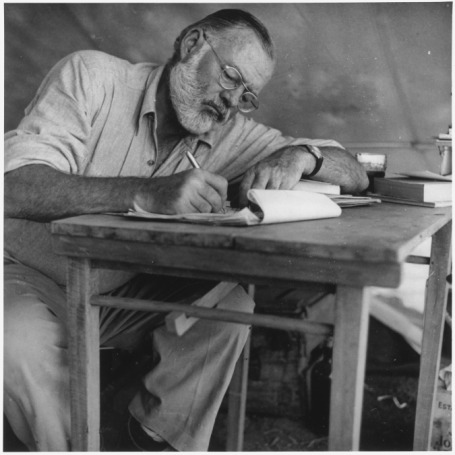First thing: Happy Halloween!
Second thing: When did the world end?
I’m being facetious, of course. The world is still intact, and will remain that way until the Philadelphia Eagles win another Super Bowl, at which point all existence will implode upon itself. But in my new short story, The Post-Apocalyptic Independent Author, the world is kaput. And today, I’d like to give you a behind-the-scenes at this story.
The Inspiration
Last year, a certain global pandemic made the future seem grim. And here in the United States, we also had rampant police brutality (and still do, sadly), along with an anxiety-laden election that inspired an attempted insurrection at our capital.
So yeah. Not a great stretch there.
Sad to say, 2020 made me contemplate the collapse of civilization far more than I ever had. Being a writer, I manifested those contemplations as post-apocalyptic stories.
Such narratives are strangely optimistic: They promise life—albeit often bleak—even after catastrophe. But post-apocalyptic stories can also be arrogant, because they often assume the near-extinction of humans qualifies as the end of the world. Here’s the thing: Even if humans die out, planet Earth will still endure (probably). To quote the great humanist Ozzy Osbourne: “The world will still be turning when you’re gone. Yeah, when you’re gone!”
So, I imagined a future where Earth moved on from humans, though books still existed (even the bad ones). Thus, The Post-Apocalyptic Independent Author was born. Or rather, written.
The Writing
As with many of my stories, this one had many failed incarnations. I knew I had the elements—I just needed to configure them properly. Those elements were, in no particular order…
- A prolific yet talentless and inexplicably cheery author based on Kurt Vonnegut’s Kilgore Trout (and a little on me)
- A wagon full of books
- A sand-swept, desolate landscape
- Offbeat humor
- Godlike cockroaches
Number two turned into a wheelbarrow, and number five went from plural to singular, but the rest remained essential. But how would I fit the pieces together?
In one aborted draft, for example, our main character encounters several characters on the road, trying (and failing) to sell a book to each. Here’s an excerpt from a draft I wrote in June:
“I hope you don’t mind me saying,” said Oliver, “but you look like a romance guy.”
The man Oliver spoke to, the alleged romance guy, was a squat, balding brute with a bulky frame hidden beneath a flak jacket. He stood with his massive hands squeezing each other, like the jaws of two wolves snarling over a scrap of meat. His eyes were cold and gray and lifeless. They did not blink.
“Kissing,” Oliver continued. “Lots of kissing and squeezing and moaning. It’s borderline erotica, but not quite there. A little softer, you might say, but if you’ll excuse my saying, you look like a soft, loving sort of guy. Deep down, I mean.”
The man spat in the dust.
I was proud of the writing here, especially considering I dictated it during my commute. Yet the story never felt like it was about anything. It needed more depth, more nuance, more meaning.
So, I tried a new tactic. This time, I changed it from third-person to first.
I knew a guy once who told a joke. The joke went like this: What’s the difference between a writer and everybody else?
Wait for it, wait for it, then comes the punchline: Everybody else makes a living.
Big laughs, big laughs. Funny because it’s true. I know from experience.
See, I sold my books before the end and I sell them now, too. You would think that a global apocalypse would open people’s wallets, but no. I’ve still never sold a copy.
Warmer. The first-person voice felt better than third, but it hadn’t solved the depth and nuance problem. Again, I had to ask myself: What is this story truly about?
The answer: lost friendship. We all have that childhood friend we lose track of, that person we grew apart from, though we can’t explain why. This is a story about the friends we lose—and maybe even reconnect with.
The Finished Product
At first, The Post-Apocalyptic Independent Author was a placeholder title. However, I liked the rhythm so much I kept it. I’m proud of this story’s blend of post-apocalyptic setting, offbeat humor, and a dash of horror (hence the Halloween release).
Want a taste for yourself? Here’s an appetizer:
“Hello, human.”
Ah. So I’ve been spotted. I tip my hat to the hybrid face now leering at me, hoping the casual gesture belies my dread.
“How many books would you like to buy?” I ask the drone. “A copy of each? This is your lucky day, my friend. I have plenty.” (I have plenty because nobody ever bought a copy, even when there was money to buy them with. But I keep that detail to myself.)
The drone approaches me. He wears a flowing robe that matches the dull gray of the world around us. The way his legs dance beneath, I can tell he has more than two.
“A book?” he asks with a lopsided grin. “Why not a blessing? Why not the Blessing? Shall I describe the process to you?”
“I’d rather describe my books to you.” I peel aside the tarp on my wheelbarrow like a magician revealing the vanished rabbit. “I’ve got hardcovers, paperbacks, matte finish or glossy. My newest stories are written longhand in notebooks, or sometimes upon several napkins. Not the most appealing medium, but I’m sure you understand, what with the state of publishing these days. Ah. Try this one.” I pass a hardcover copy of Shank & Shiv: Attorneys at Law to the drone. Sweat trickles down my back. “Supernatural legal thriller. John Grisham meets William Peter Blatty. You look like you’d enjoy it.”
The drone’s green eyes squint at the cover. “This cover is…”
“Gorgeous? Why thank you. I made it myself. With Photoshop. Remember Photoshop?”
The drone flips over the book and reads the back cover aloud. “‘They say demons love contracts. That’s why Shank & Shiv, demons and best buddies, open their own half-legal law firm in New Jersey.’”
I nod. “Remember New Jersey?”
A shrug, and the drone reads my name from the bio. “‘Oliver M. Fudge.’ Is that you?”
“One of me. It’s a pen name, you see. I’m a genre-hopper.”
“Fascinating. Now, I’ve listened to your pitch. Will you listen to mine?” The drone’s insect mandibles tickle the air. He doesn’t wait for an answer. “I am an emissary. I offer the Blessing of the Roach to the refuse of this world. Refuse such as yourself, Mr. Fudge. Do you wish to see clearly and breathe freely? Do you wish to ascend higher than your predecessors ever dreamed? If so, the process is simple.”
“Simple, eh?” I study the drone, my gaze lingering longest on his antennae and the legs beneath his robes. “Seems like you’re still working on it.”
“A transitory state. You should see me when I’m all grown up.”
“I’d rather not. I’d rather sell you a book.”
And here’s what advance readers have thought of the story:
- “A strange, comical, and heartwarming story.”
- “This is quite a shift to the typical apocalypse tale.”
- “A really sweet little story about friendship, giant roaches, and terrible short stories during the end of the world.”
Click here to purchase your copy of The Post-Apocalyptic Independent Author. Happy Halloween!
Kyle A. Massa is a fantasy author living somewhere in upstate New York with his wife, their daughter, and three wild animals. His published works include two books and several short stories. When he’s not writing, he enjoys reading, running, and drinking coffee.






